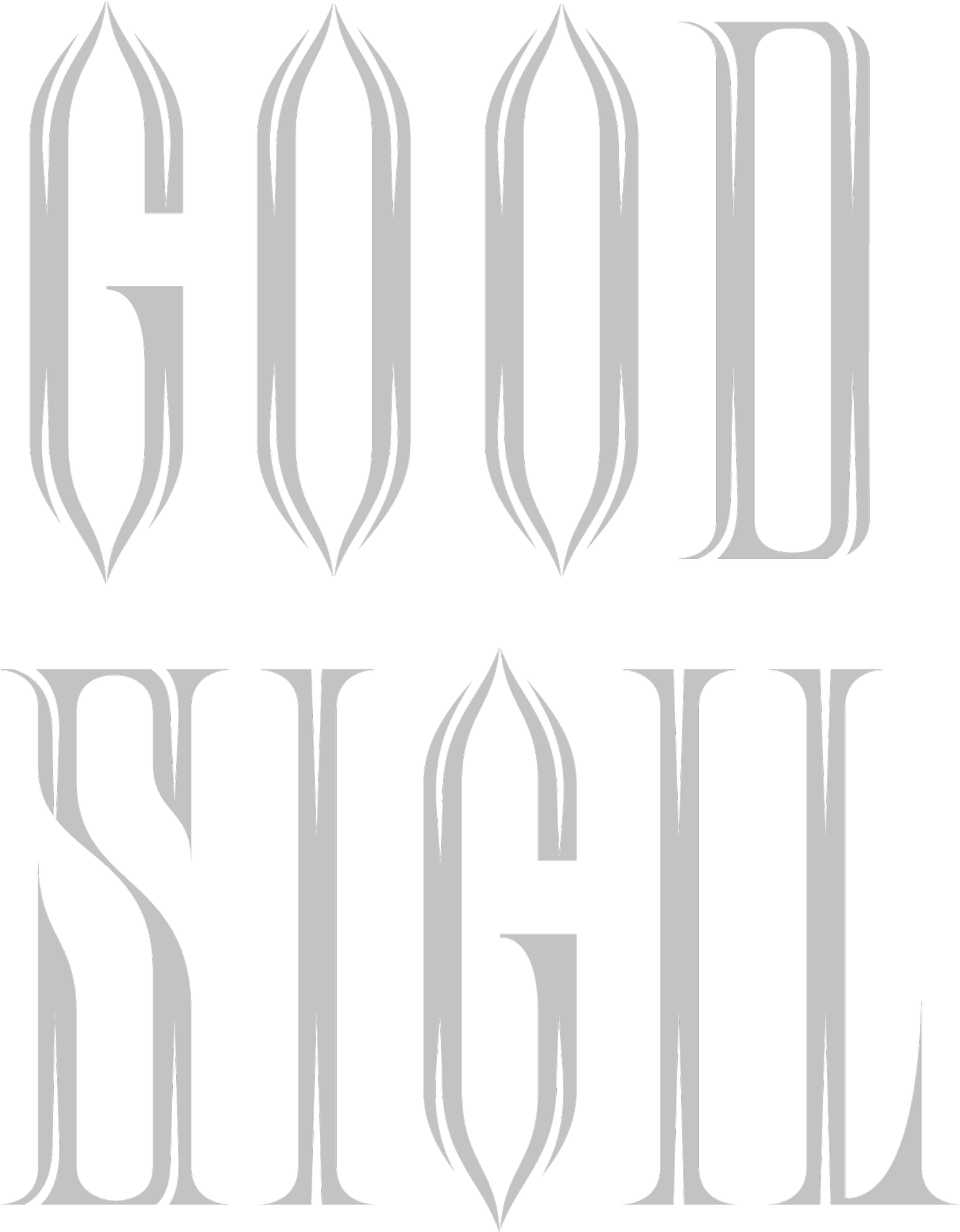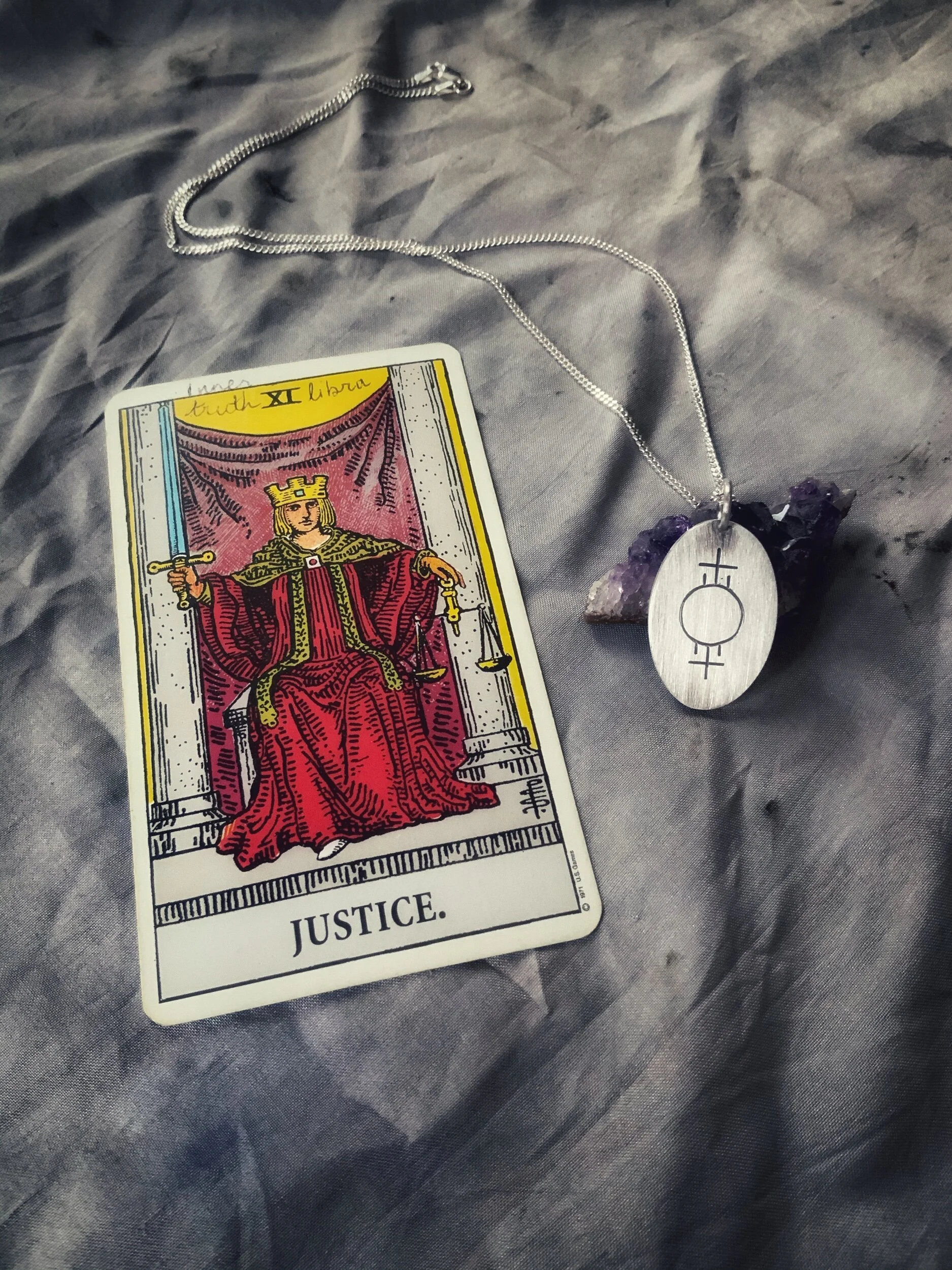The Justice Card
Justice is a card that is occasionally renamed in decks. A standout for me is the Collective Tarot (my copy of which I gifted to a dear friend) that calls Justice instead, Accountability. From an internal perspective, I find this renaming very useful. Accountability confronts the querent and calls them to recognize that they have some part to play in an exchange rather than being an object that is acted upon by an outside force of Justice.
Justice suggests that we reap what we sow; that our actions have consequences & that we get what we deserve. I have personally had a very “Justice” moment in my life when, at the age of 27, I was sued by a pedestrian that I had struck while riding my bike. I didn’t realize it at the time but I had run a red light in my eagerness to get home. It was my fault. I ended up paying a settlement to the individual I struck which set me back financially for about a decade (at the time of writing this, I am on track to pay it off in about two years).
There was a period of time between the accident and the lawsuit during which it was uncertain who was at fault. It was easy to assume that the other person was the one who had acted in the wrong or made a bad decision. My family and friends were quick to reassure me that I was going to “win”. In reality, winning would have not given me the valuable lessons I have learned: Slow down! Act with consideration. Take accountability for your part. Be honest with yourself. And perhaps the biggest gift of all, that I myself was lucky enough to not instead be hit by a car and injured.
In the Smith-Waite tarot, Justice is an androgynous figure, seated on a stone bench. They are wearing red robes and a golden crown. In their right hand they hold the scales and in their left hand they hold a sword upright. Their posture mimics that of the Magician with one hand pointing towards the sky and the other to the ground. We remember: As above, so below. The eternal exchange of energy and the balance that nature keeps is a principle that reoccurs in many of the cards.
In her book, Seventy-Eight Degrees of Wisdom, Rachel Pollack says of Justice, “The sword, an emblem of action, points straight upward, indicating both resolve and the idea that wisdom is like a sword piercing through the illusion of events to find the inner meaning. Two-edged, the sword signifies choice. Life requires us to make decisions; at the same time each decision, once made, cannot be revoked. It becomes a part of us. We are formed by the actions we have taken in the past; we form our future selves by the actions we take now.”
The scales also represent the perfect balance of past and future. Past and future balanced, not in time, but in the clear sight of Justice staring out at you from the exact centre of the Major Arcana.” (Pollack, p. 92)
On the pendant design I’ve merged the sword and the scales. The pommel of the sword is a sun glyph and the tip of the sword is plunged into a crescent moon. This creates a balance point between day and night on which the scales hang. The sword also recalls the Ace of Swords and the element of air. The capacity for detachment and decisiveness lies here.
The Justice card is the card that relates to the zodiac sign of Libra and the constellation of the scales. Libra is ruled by the planet Venus and has much to do with relating, diplomacy, seeing the other side, and creating peaceful and harmonious environments. Libra is sometimes trolled as a sign that is not good at making decisions because both sides of a situation are so deeply considered. But is a quick decision “better” than a well-considered one?
On the reverse of the pendant is a sigil combining Venus’ planetary glyph and a deconstructed zodiacal glyph of Libra. It is of course as symmetrical as my human hand could carve it, to imply balance & harmony.
Bibliography
Pollack, R. (2007). Seventy eight degrees of wisdom. San Francisco, CA: Red Wheel/Weiser.

This work is licensed under a Creative Commons Attribution-NonCommercial-ShareAlike 4.0 International License.



